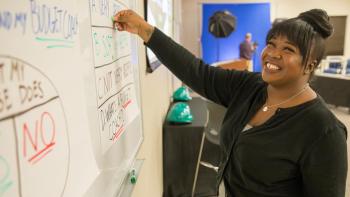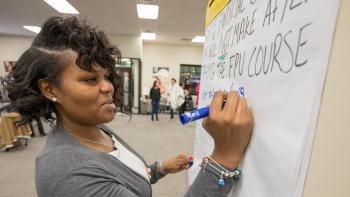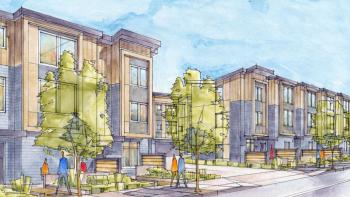At Habitat, we believe that financial education is critical to successful long-term homeownership and to building intergenerational wealth and improving health and education outcomes for families.
That’s why Habitat prioritizes helping families learn how to budget and save, preparing them to manage an affordable mortgage as homeowners.
Find out more about the homeownership process, or contact your local Habitat for more information.
Frequently asked questions
-
Yes, Habitat homeowners must complete our required financial education program. Even for those who feel they have a good understanding of personal finance, we believe there is always more to learn. Our proven system of practical advice and techniques has prepared and benefited thousands of homeowners over the years.
-
Local offices conduct their classes differently. Future homeowners will be provided with this information and much more during the process, but please feel free to contact your local Habitat for more specific information.
Kandace Diggs, Salt Lake Valley Habitat’s family services coordinator, offers one example of how future homeowners engage in the process: “In pre-purchase classes, they go through credit building, checking, savings, money market accounts, loans, and they also have estate planning and wills,” she says.
“When we sit down, the very first class, we have them create a budget and list all of their outgoing payments and all of their incoming money each month, so that they can get hands-on and actually see what’s going on. We talk to them through the whole process.”
-
During these financial education classes, we cover topics such as budgeting, credit cards and credit reports, debt and loans, saving, investing, planning for the future and emergency situations, and Habitat mortgages.
-
Financial education facilitated by housing experts like Habitat helps families and individuals reach financial goals, increase savings and secure financial stability. Access to financial education can also help address the homeownership gap in the U.S. — an issue exacerbated by disparate opportunities and access to financial resources for people of color.



